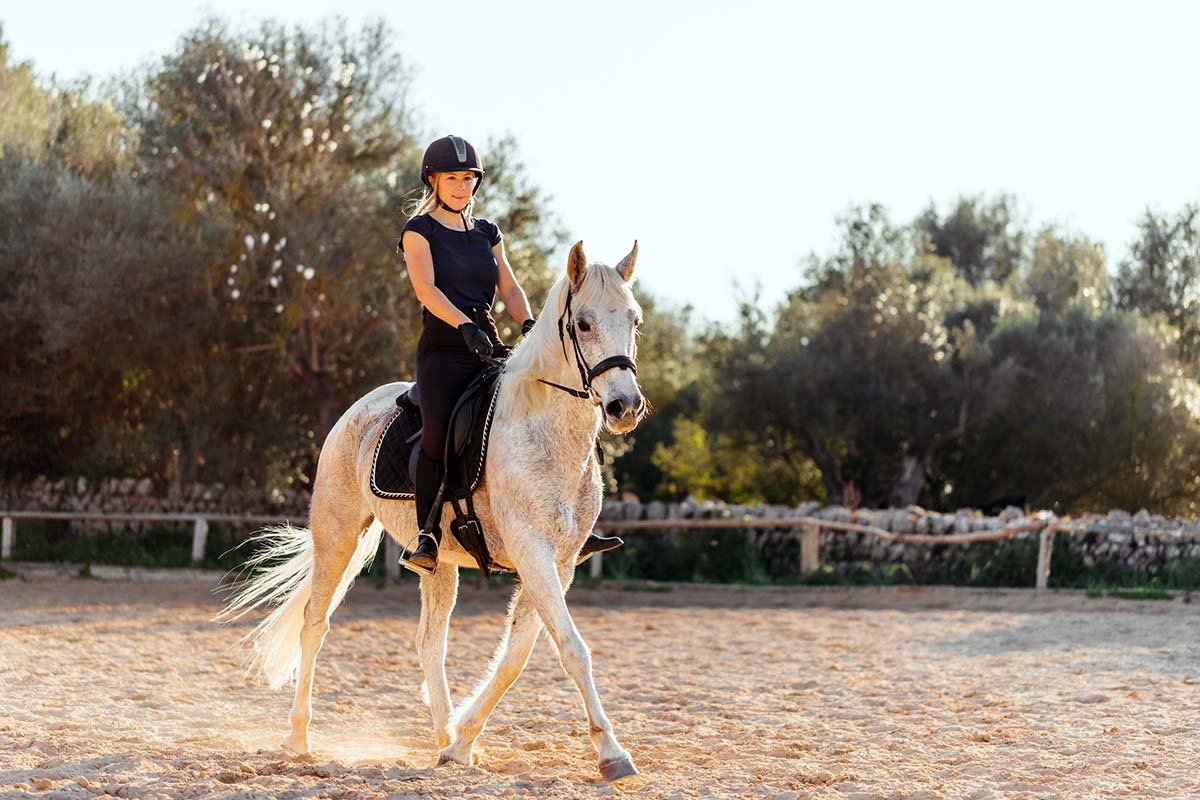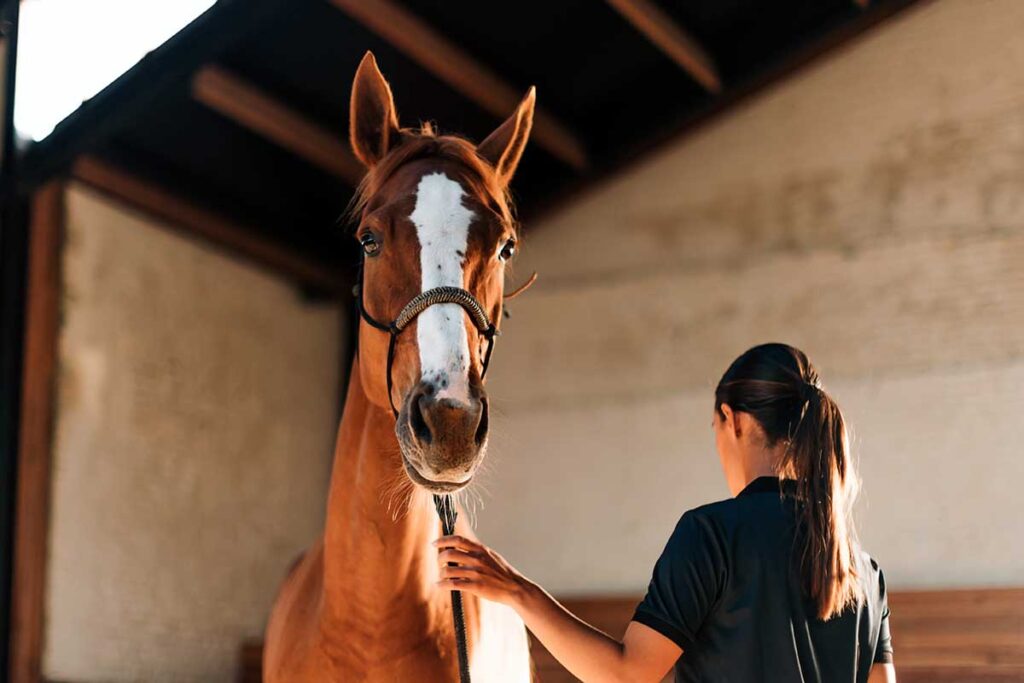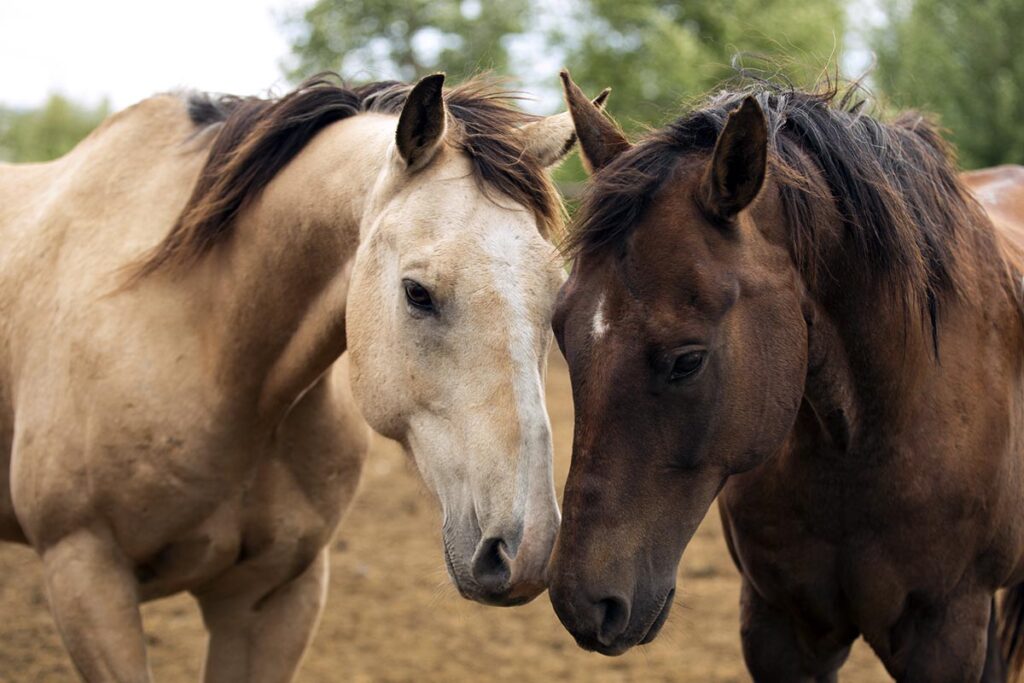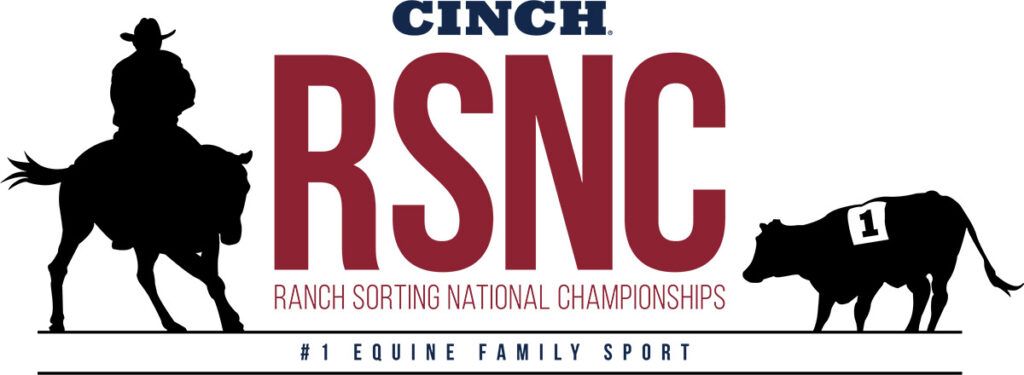Don’t let hot summer days keep you out of the saddle! While sweaty saddle pads and riding clothes are inevitable, proactive steps before, during, and after your ride can prevent your horse from overheating. Let us help you make the most of summer rides with our tips on how to keep your horse cool out in the sun.
Before Legging Up
Before you ride on a hot day, particularly if humidity is high, make sure your horse is managing the heat well enough. A horse that has been standing in a shady field or a well-ventilated stall shouldn’t be sweaty before you even tack up. In hot weather, consider sponging or hosing your horse with water before you ride. Scrape him and then tack up while he is still damp. The water will evaporate as he works, just as sweat would, keeping him cooler.
During the Ride
As you ride, be mindful of how your horse is coping with the heat. Take breaks often and check his respiratory rate, either visually or by feeling him breathe beneath you. It’s not unusual for an exercising horse to breathe hard, but his respiration should return to normal after a few minutes of walking. If your horse breathes hard longer, or if he suddenly just seems sluggish, he needs a break in the shade, a cooling bath, and access to water.
Post-Ride Routine
After your ride, head for the wash stall. There is no harm in putting cold water on a hot, sweaty horse, and it can help lower his body temperature. Scrape the water off, then walk your horse for several minutes to allow his muscles to cool down. Also offer him some water to drink. If his demeanor and respiratory rate don’t seem normal within a half-hour, take his temperature. If it’s elevated, rinse and scrape him again. Then retake his temperature. If it hasn’t dropped considerably, call your veterinarian.
When you turn your horse out or return him to his stall, make sure he has plenty of clean, fresh water available. It can take several hours and many drinks to replace fluids lost during a workout on a hot day. If he has sweated for more than two hours, consider adding an electrolyte supplement to his evening meal to replace vital minerals lost through perspiration.
What To Do If Your Horse Gets Too Hot

Heat exhaustion occurs when a horse’s natural cooling system—primarily sweating—can no longer keep his body temperature in check. Specifically, when a horse’s core temperature reaches 104 to 108 degrees, heat exhaustion sets in, and dangerous physiological changes occur. Prolonged exertion in hot, humid conditions is a common cause of heat exhaustion. Humidity keeps sweat from evaporating and, therefore, cooling the horse. Signs of heat exhaustion include a high body temperature, rapid breathing (even panting like a dog), and a dull demeanor. If your horse does get overheated, here’s how to help:
- Move the horse into the shade. This can be under a tree, in a barn, or even in the shadow of a horse trailer.
- Douse the horse with the coldest water available. Direct application of cold water to the horse is the fastest and most effective method of lowering body temperature. The notion that putting cold water onto hot muscles can cause cramping or laminitis has been debunked, so use as much of the coldest water as you have. Drench the horse, scrape him dry, and then repeat.
- Use any other cooling aid you have on hand. If you have ice (or can send someone to get some quickly), put packs along the horse’s head and throat, where major blood vessels serving the brain run close to the surface. Standing the horse in front of a fan as you sponge him down will also speed cooling.
- Assess his attitude. As a horse cools, his general demeanor will perk up. He will seem more interested in his environment, might want to graze, or even begin to object to your efforts to cool him. All of these are good signs.
- Make water available. Allow the horse to drink as much as he wants. If possible, offer him lukewarm water—it’s a myth that drinking cold water will cause an overheated horse to colic, but he’s likely to drink more if the liquid is tepid. However, do not try to force water intake with syringes, hoses, or other artificial means. If water enters a horse’s lungs, he can develop pneumonia.
- Use electrolytes sparingly. If you have powdered electrolytes, add a scoop to a bucket of water, but offer plain water also. Avoid giving a horse with heat exhaustion electrolyte paste. These might throw off his metabolic balance or contribute to dehydration.
- Do not give your horse any medication. A dehydrated horse’s kidneys are already taxed, and drugs can push them over the edge to failure.
Take-Home Message
Follow these safe summer riding tips to keep your horse as cool as possible on a hot day. If, despite your best efforts, your horse does show signs of heat stress, call your veterinarian right away, and take action as you wait for his or her arrival. Move the horse to a shady area, hose or sponge him down with cold water, and stand him near fans as you work.








